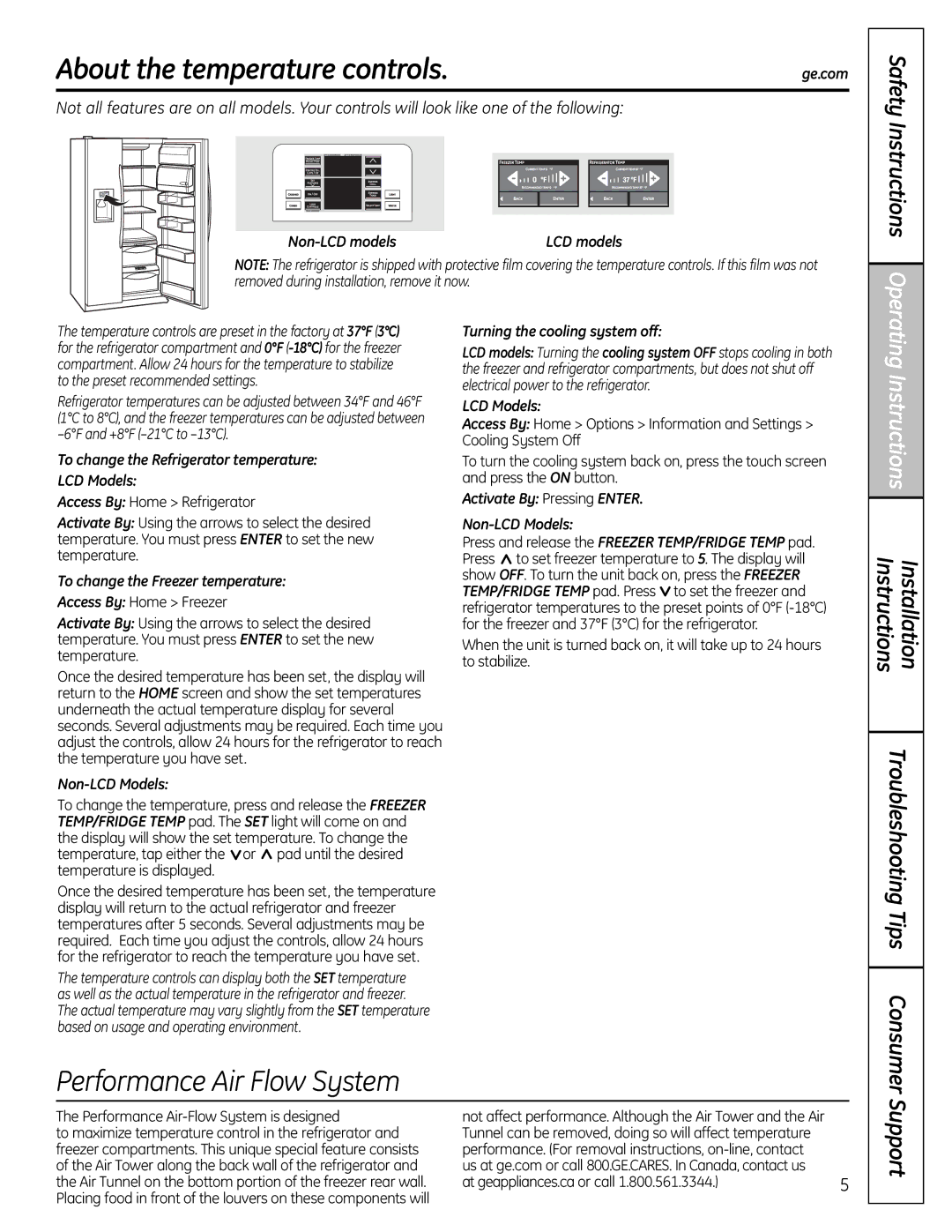23, 26, 25 specifications
The GE 25, officially known as the General Electric 25 (GE 25), is a revolutionary advanced gas turbine designed to enhance the efficiency and productivity of power generation. This cutting-edge turbine is engineered with an eye towards meeting the evolving demands of the energy market while ensuring environmental sustainability.One of the primary features of the GE 25 is its highly efficient combustion process. Utilizing advanced combustion technology, the turbine achieves lower emissions of nitrogen oxides (NOx) while maintaining a high power output. The GE 25 is designed for use in both simple cycle and combined cycle power plants, making it a versatile choice for various energy generation applications. The turbine's ability to transition seamlessly between these cycles allows operators to optimize energy production based on demand.
The GE 25 is built with advanced materials that enhance durability and performance. The components are constructed from high-temperature alloys that withstand extreme operating conditions, thus ensuring longevity and lower maintenance costs. This durability is crucial as it minimizes downtime and maximizes productivity in power generation facilities.
Innovative technologies incorporated into the GE 25 include advanced aerodynamics and an intelligent control system. The turbine features an optimized blade design that improves airflow efficiency and reduces drag, resulting in higher overall performance. Additionally, the intelligent control system offers real-time monitoring and analysis, enabling predictive maintenance and ensuring that the turbine operates at peak efficiency.
The turbine's modular design simplifies installation and maintenance processes. This allows for faster commissioning times and enhances operational flexibility, making it a preferred choice for both new installations and retrofitting older plants. The GE 25 is also compatible with a wide range of fuel types, including natural gas, biogas, and even hydrogen blends, which aligns with the industry's shift towards more sustainable energy sources.
In summary, the GE 25 stands out as a powerhouse in the gas turbine industry, with its cutting-edge features, advanced technologies, and robust characteristics. By prioritizing efficiency, durability, and flexibility, the GE 25 meets the current and future energy needs while contributing to a greener planet. As the demand for reliable and sustainable energy sources continues to grow, the GE 25 will play a vital role in shaping the future of power generation.

